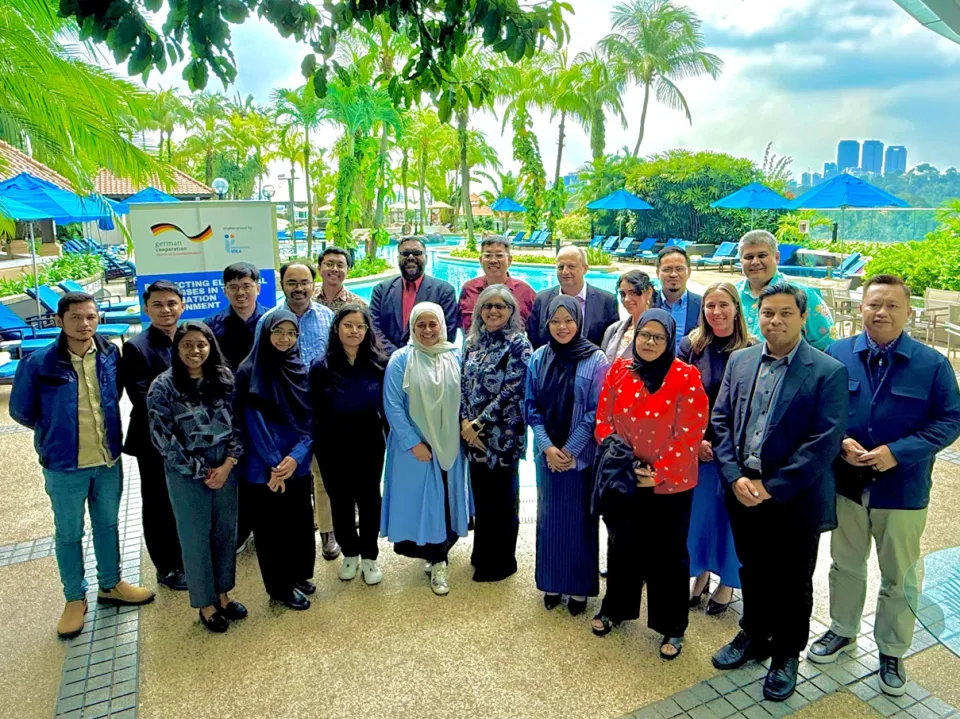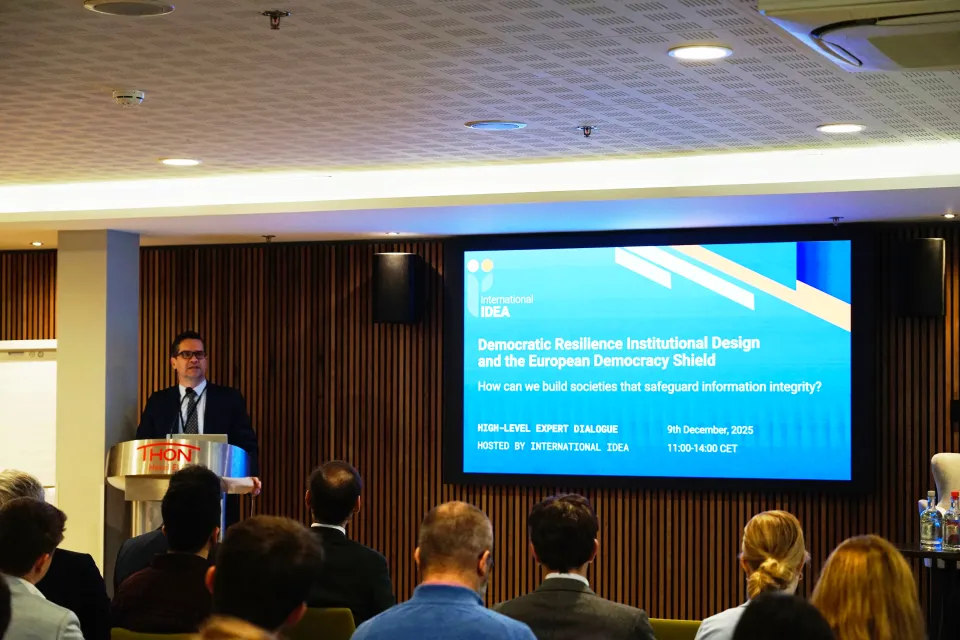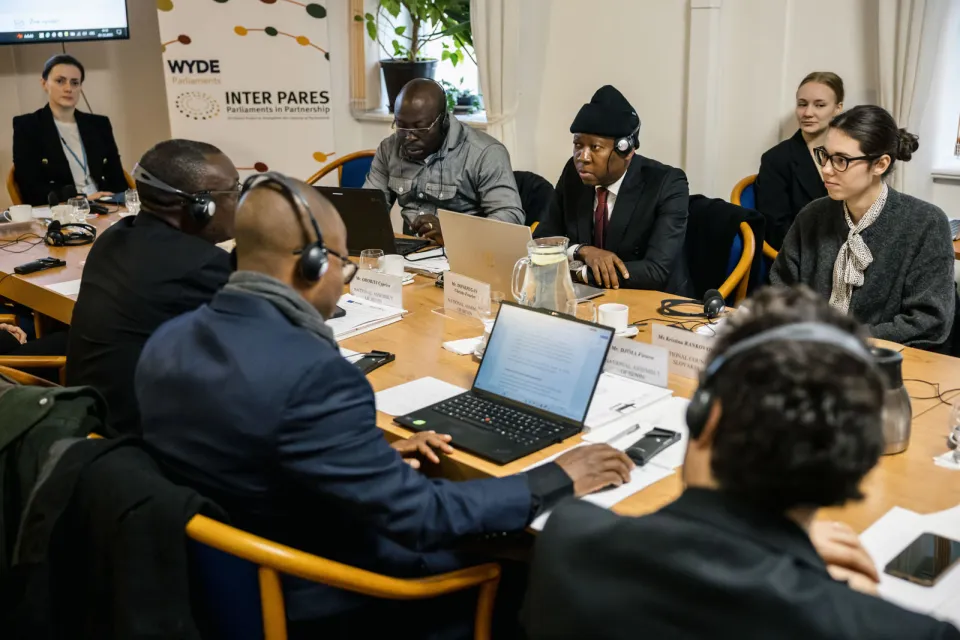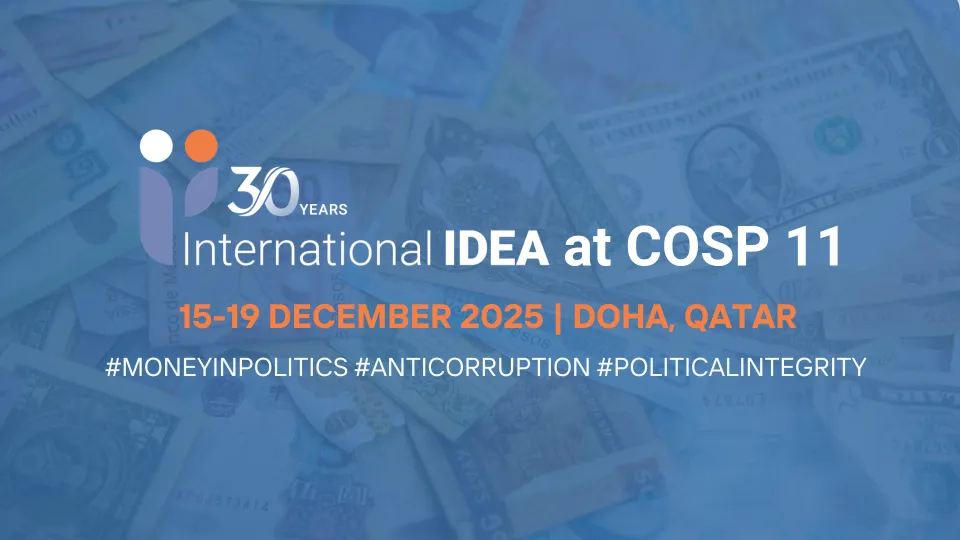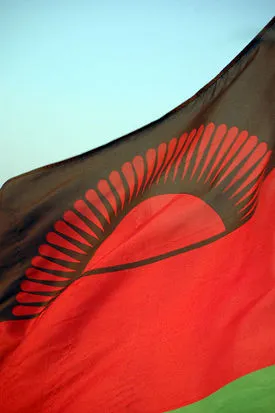
Over the past several years, the Republic of Malawi has made incremental progress to create and sustain a politically stable climate for its citizens. This is notwithstanding the challenges the nation faced in the period between 2008 and 2011, when democratic governance was under severe strain in the country. During this period Malawi experienced what many referred to as “democratic regression” as the political space for contestation and participation seemed to close as a result of a series of legal changes.
The shifts and regime changes unfolding in Malawi’s political context following the death of President HE Bingu wa Mutharika in 2012 opened a space for change. At that stage, it seemed that International IDEA could support the process to catalyse democratic participation and build consensus on the issues and priorities that were important to the citizens of Malawi.
To start, International IDEA launched a process of extensive consultations with stakeholders involved in contributing to Malawi’s democratisation process. These consultations were conducted over a four-month period in 2012, and through them International IDEA engaged with more than 65 senior actors, including civil society activists and leadership, senior government officials, political principals across key ministries engaged in democratic governance related activities, academics and leaders of think tanks and development partners.
Although the focus of those consultations was to see whether a state of democracy (SoD) assessment in Malawi would be possible and of use, the depth and scope of the consultations also provided International IDEA with a view of the Malawi political landscape, its trajectory at that time and finally, where there could be opportunities to contribute to its democratic governance efforts.
While there was resounding consensus amongst all consulted stakeholders that an SoD assessment would be of value to the democratisation process, politics overtook the process, as informal campaigning began much sooner than anticipated for the May 2014 parliamentary and local elections. It was in this context that International IDEA decided that the timing of the SoD assessment was no longer favourable that further consultations on this matter should be postponed until after the elections.
In the period since those 2012 consultations on the SoD assessment, a number of small, modest activities were conducted – one of the most important lessons from the Malawi experience has been that as a democracy assistance provider timing is always an issue. In Malawi for example, the focus was on a potential SoD assessment. However, at that stage and given the political events that took place, it became impossible. But this obstacle, created other opportunities for the pursuit of a range of other important democracy building activities.
In cooperation with the Office of the Ombudsman and the Centre for Multi-Party Democracy (CMD), respectively, three activities were pursued successfully.
- A pilot to assess democratic accountability in service delivery was conducted in 2013-14 with the Office of the Ombudsman.
- In August 2013 a multi-party dialogue workshop took place to share the outcomes of research conducted on the ‘analysis of political parties’ policies and the mainstreaming of gender and women’s political participation’1. Then, in November 2013, a multi-stakeholder workshop was conducted to assess the role and readiness of constitutional bodies in the preparations for the May 2014 elections;
- In November 2014 a multi-stakeholder colloquium was co-convened with another local think tank, the Institute for Policy Interaction, in order to reflect on the emerging trends in the Malawi landscape in light of the elections outcomes, and most notably the implications for socio-economic transformation and democratic governance emanating from the Cashgate scandal, a corruption and theft scandal revealed during President Joyce Banda´s time in office.
While these activities cited were not planned, they did accomplish a few things that give insight into what can emerge in the democracy building efforts in contexts where the political economies are fragile, unpredictable and resources are scarce.
One step closer to a state of democracy assessment
A two-day workshop in September marked an important moment in this journey which began in Malawi three years ago. In the words of Mr Ellos Lodzeni, Executive Secretary of the Office of the Ombudsman, “the collaboration [with IDEA] and the work that has been done so far are important milestones in the quest for democratic consolidation and good governance”.
The workshop theme was “strengthening citizens' political participation in democracy" at the local and national levels. It served as a platform for a dialogue about progress in implementing the reforms recommended by the democratic accountability in service delivery at the local level and then also, discuss the potential value and benefit to democratic participation, in identifying reforms through a process that is citizen centred.
During the workshop, participants shared lessons and experiences gained from the pilot on democratic accountability in service delivery at the local level. In particular, progress in implementing the recommendations from the pilot was reviewed as well as challenges experienced.
Participants including the Chairperson of the Malawi Local Government Association and Deputy Mayor of Blantyre City Council, highlighted the urgency required for review and reforms in the Local Government Act (2010) as well as other national decentralization legislations, if democratic quality and confidence in the effectiveness of local authorities are to improve.
There also was consensus that following the Cashgate scandal, more opportunities for multi-stakeholder dialogue with citizens at the centre could only be beneficial. This coincides with an initiative by the current administration to rebuild the confidence of citizens and development partners in the government’s commitment to upholding democratic values.
One of the most insightful aspects of the workshop was the experience sharing from other contexts where SoDs and SoLD have been conducted. The experiences of Zambia (SoD) and Botswana (SoLD) were shared and through this and participants were given practical instances where the outcomes of the SoD and SoLD have influenced policy processes, shaped reform agenda and strengthened citizens’ political participation. The discussions that took place about the Zambia and Botswana experience were key, as they gave participants an opportunity to engage with the methodology, content and the actual process of conducting the assessment.
The workshop provided stakeholders with space for renewed conversations about Malawi’s democratic progress the most important outcome of the workshop was the consensus built on what value a SoD could add in the current period. It was also noted that its implementation in 2016 would be timely as the next presidential elections are scheduled for 2018.
The assessment outcomes would then give clear messages to political contestants about the expectations and aspirations of Malawi’s people.
Finally, participants also made recommendations on the institutions that should lead the SoD and it is in this context that International IDEA will continue this journey with the joint leadership of the Office of the Ombudsman and the Institute for Policy Interaction. This tri-parte cooperation is now busy with the establishment of the assessment team and the preparation for the training of this team, which is expected to take place in October 2015.
Malawi was one of 35+ African countries included in the comparative global research project. The project was spearheaded and conducted by International IDEA's Gender Programme.
